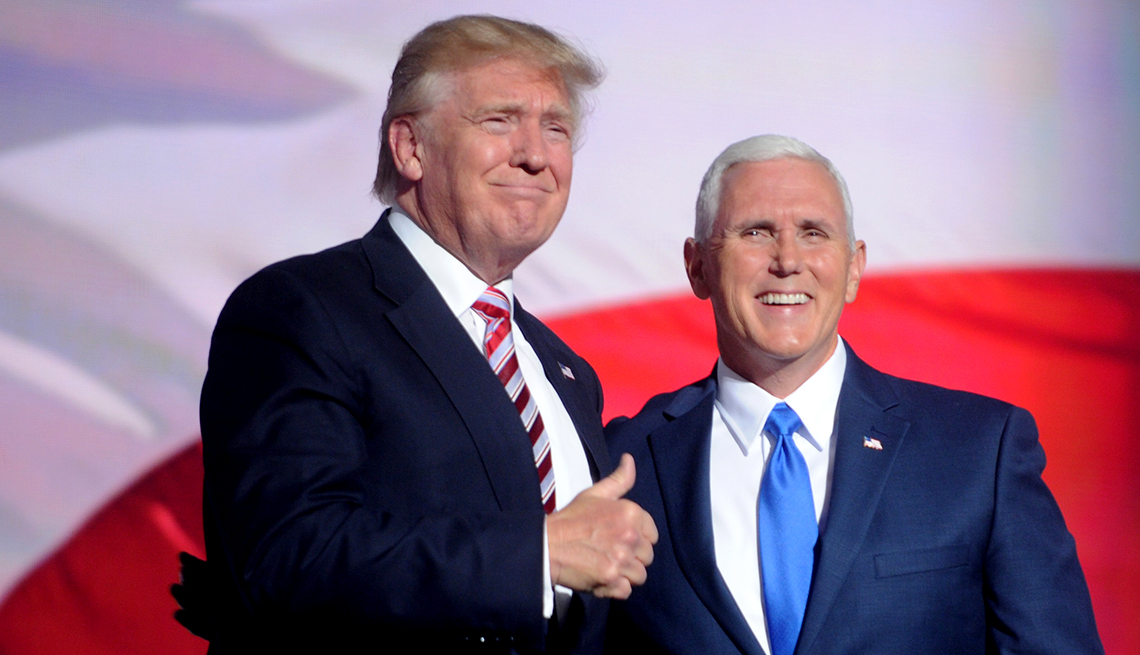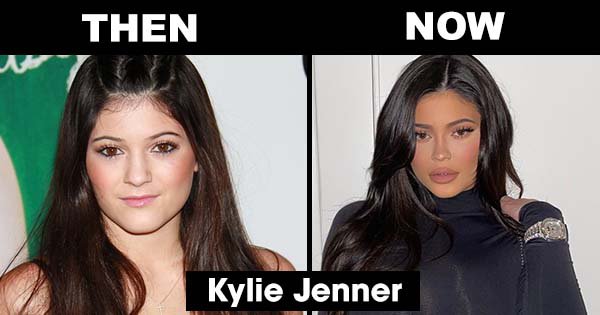
- Select a language for the TTS:
- UK English Female
- UK English Male
- US English Female
- US English Male
- Australian Female
- Australian Male
- Language selected: (auto detect) - EN
Play all audios:
* PRESIDENT-ELECT DONALD TRUMP En español | Trump campaigned on promises not to cut Medicare and other public health programs. But a recent change to his website suggested he now supports
efforts to “modernize” Medicare, to deal with “challenges with the coming retirement of the baby boom generation.” The president will be under pressure from some congressional Republicans to
back major changes to Medicare. (Photo: Getty Images) 1 of 8 * VICE PRESIDENT-ELECT MIKE PENCE Pence is a fiscal conservative who has championed GOP-backed efforts to reduce federal
investments in the Medicare program. He has backed Paul Ryan’s plan to turn Medicare into a “premium support” system. However, Trump and Pence have said that a Medicare overhaul is not on
the table. (Photo: Chip Somodevilla/Getty Images) 2 of 8 * SPEAKER OF THE HOUSE PAUL RYAN (R-WIS.) Ryan has said that a repeal of the Affordable Care Act should be paired with an overhaul of
Medicare. He wants to turn the program into a premium support system, which would give people a fixed amount of money to purchase private insurance. (Photo: David Orrell/CNBC/NBCU) 3 of 8 *
HHS SECRETARY PICK TOM PRICE Price, a Georgia congressman, was selected by Trump to serve as secretary of the Department of Health and Human Services. He advocates adopting a premium
support system for Medicare, but many warn that this system could end the guarantee of certain government-provided benefits for seniors. (Photo: Drew Angerer/Getty Images) 4 of 8 * SENATE
MAJORITY LEADER MITCH MCCONNELL (R-KY.) The Senate majority leader is a likely champion for the rollback of federal support for social programs. He has proposed significant changes to
Medicare, such as raising the eligibility age. (Photo: Joshua Roberts/Reuters) 5 of 8 * SENATE MINORITY LEADER CHARLES SCHUMER (D-N.Y.) The minority leader promised that Democrats from all
states were going to “link arm in arm” to protect Medicare and ensure “Republicans do not succeed” in efforts to change the program. (Photo: Melissa Golden/Redux) 6 of 8 * SENATE FINANCE
COMMITTEE CHAIRMAN ORRIN HATCH (R-UTAH) Head of the committee that oversees Medicare, Hatch believes that “real reform” must be made to Medicare to ensure the program is not “condemned to
bankruptcy.” (Photo: Andrew Harrer/Bloomberg) 7 of 8 * HOUSE MINORITY LEADER NANCY PELOSI (D-CALIF.) Pelosi has been an opponent of Republican efforts to change entitlement programs. She
recently blasted Republican plans to end the Medicare guarantee and vowed to block an overhaul. (Photo: Bill Clark/CQ Roll Call) 8 of 8 THE TERMS TO KNOW PREMIUM SUPPORT PROGRAM The term
used to describe the most widely discussed Republican plan for Medicare. Under this proposal, rather than a guaranteed benefit package, the government would provide a fixed dollar amount to
users, who could then choose among competing private health insurance plans. Supporters say this would stimulate greater price competition among insurers and ultimately cut consumer costs.
VOUCHER SYSTEM Opponents often use this term instead of premium support, though both refer to the same thing. Critics say vouchers would not purchase as much health care for beneficiaries as
the current system provides, and would shift more costs to seniors without guaranteeing benefits. PRIVATIZATION This refers to an approach to move Medicare beneficiaries into private health
insurance. (Currently, about a third of Medicare beneficiaries are enrolled in private Medicare Advantage plans, but these plans must still meet the guaranteed benefit standards of
traditional Medicare.) MEDICARE TRUST FUND Medicare payroll taxes go into one fund, which is used to pay hospitals and rehabilitation facilities (Part A). The other fund for doctors’
services (Part B) and prescription drugs (Part D) comes from premiums paid by beneficiaries and general tax revenues. TRUST FUND SOLVENCY This refers to whether the Part A fund is sufficient
to pay the hospital expenses of beneficiaries going forward. This fund is projected to be able to pay full benefits through 2028, but only 87 percent beyond 2028. NEXT: MEDICARE Q&A
> ------------------------- ALSO OF INTEREST: * TELL CONGRESS TO PROTECT MEDICARE * ‘WRITE YOUR CONGRESSMAN’ * WE’RE BUILDING A MOVEMENT TO PROTECT MEDICARE JOIN AARP TODAY — RECEIVE
ACCESS TO EXCLUSIVE INFORMATION, BENEFITS AND DISCOUNTS










